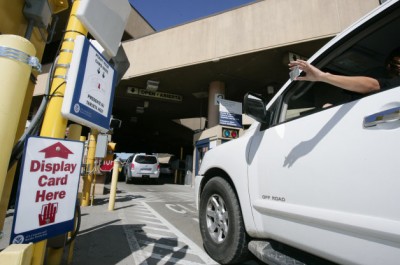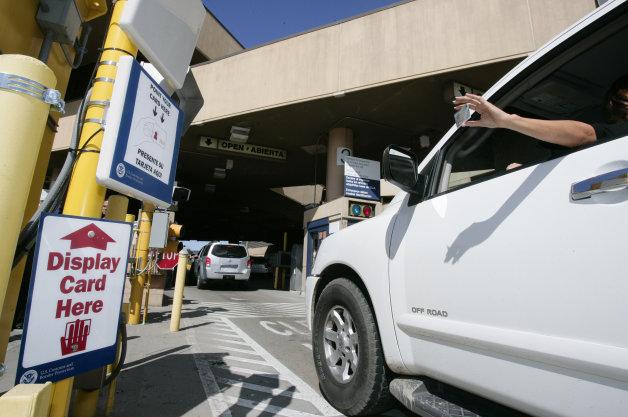
image credit autoblog.com
Some state governments are adding a new technology called radio frequency identification chips (also known as RFIDs) to driver’s licenses that will make it easy – critics say — for state officials to track citizens.
The technology is not new; it is used by large retailers like Walmart to track shipments and in next generation credit cards. Such RFID chips are already being implanted in driver’s licenses in four states: Michigan, Vermont, New York, and Washington. A committee of the California state legislature killed a plan to place the chips in driver’s licenses in the Golden State.
The technology, supporters say, allows for easier crossings at the borders with Mexico and Canada. So far, the licenses are optional in the four states, but Jim Harper of the Cato Institute says it’s still a bad idea.
“Given the government’s propensity for turning optional pilot programs into permanent mandatory programs,” Harper said, “it’s not difficult to imagine a time when the EDL [enhanced driver’s license] programs cease to be optional — and when EDLs contain information well beyond a picture, a signature, and citizenship status. The government also tends to expand programs far beyond their original purposes.”
Maintained by Homeland Security
The really frightening thing, civil liberties groups say, is that all the data in the cards is included in a database maintained by the Department of Homeland Security. That allows federal law enforcement and foreign governments to track the driver’s licenses.
Discover The Only Way Back To True Freedom And Liberty In America…
The idea is that an EDL will double as both a passport and a driver’s license. That will make it easy for Homeland Security to track anybody that crosses the border. A 2009 measure called the Western Hemisphere Travel Initiative requires anybody that travels between the U.S. and Canada or Mexico to carry a passport. Until then all you needed to visit our neighbors was a driver’s license
Said the Cato Institute’s Harper, “[An EDL] contains a radio frequency identification (RFID) chip, which in turn contains a personal identification number. Think of it as your Department of Homeland Security tracking number. The RFID chip broadcasts the information to any receiver that properly interrogates it. … The receiver pulls up information held in a DHS database, including identity data, the bearer’s picture, and signature. … At the border and beyond, it allows pretty much anyone to figure out your comings and goings. RFID chips are being added to other forms of ID, including credit cards, school ID cards and even library cards.
Andrea Hernandez, a junior at John Jay High School in San Antonio, Texas, was actually suspended because she refused to wear or carry an ID card with an RFID chip in it. The school district was planning to use the cards to track students.
RFID Is Everywhere
Even some credit cards now contain RFID; if you travel to Canada, you’ll see people waving their credit or debit cards in front of a device instead of swiping them. Those cards contain an RFID chip which has banking information in it.
In the future, it might be possible for government to track your movements and to know what you’re doing. The government could know if you just made a purchase from the store or what books you checked out of the library.
Then, of course, there is the possibility of hacking. A hacker could easily modify a smartphone or a similar device to pick up signals from the card and steal data. The data could be used to create false IDs or to steal from people.
“An individual that does not understand the privacy and security risks of an Enhanced Driver’s License (EDL) might think, ‘Why not get an one so that I can use it to drive and also cross the border?’ It seems like common sense,” said Nicole Ozer of the ACLU of California. “But the cost to privacy and security far outweighs any benefits. If you carry one of these licenses in your wallet or purse, you can be tracked and stalked without your knowledge or consent.”
